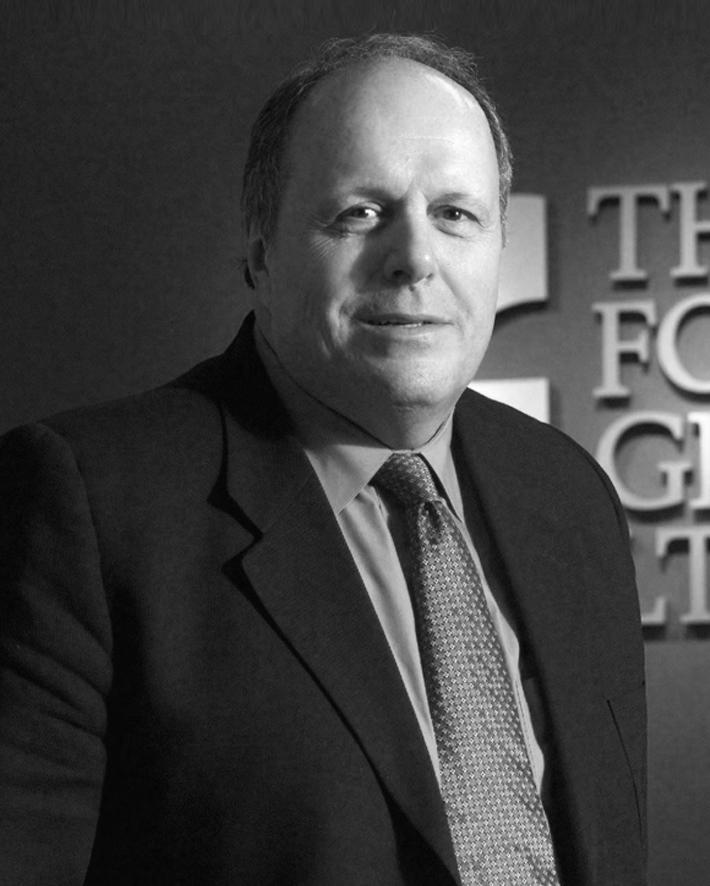
John M. Forzani
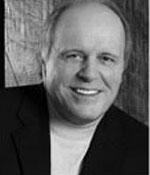 John M. Forzani is the founder and chairman of the board of The Forzani Group Ltd. (FGL), Canada's largest and only national sporting goods retailer with over 550 corporate and franchise stores representing over 5 million square feet of store space. FGL annual system sales exceed $1.6 billion and have a workforce of over 12,,000.
John M. Forzani is the founder and chairman of the board of The Forzani Group Ltd. (FGL), Canada's largest and only national sporting goods retailer with over 550 corporate and franchise stores representing over 5 million square feet of store space. FGL annual system sales exceed $1.6 billion and have a workforce of over 12,,000.
John was born and raised in Calgary, Alberta. After obtaining his BSC degree from Utah State University, John returned to Calgary and played professional football for 7 years, as offensive guard with the Calgary Stampeders. It was his football experience that opened the doors to a new career in sports retailing. Identifying the demand for athletic footwear and sports equipment, John opened his first store in 1974 with his friend, Bas Bark, and his two brothers Joe and Tom (all former Stampeders). The store was appropriately named Forzani's Locker Room, a single 1,200 square foot location in South West Calgary specializing in athletic and recreational footwear. In a little more than five years, the business had grown to 23 locations across Alberta and Saskatchewan through internally financed growth.
Further expansion came with the acquisition of Sport Chek International Ltd. in 1991 and Hogarth's Sport and Ski in 1992. By the time the company issued its initial public offering in 1993, annual gross revenues were more than $70 million. The company continued to grow; this time through the ambitious acquisition of Sports Experts in 1994, a larger Montreal-based retailer. The merger of these two operations, coupled with the threat of a U.S. sporting goods retail invasion, tested John's mettle in the mid-1990's. As the company's CEO, John spearheaded an aggressive restructuring plan in 1997 and FGL returned to profitability. In June 2000, FGL acquired Vancouver-based Coast Mountain Sports followed by the acquisition of Kamloops-based Sport Mart in June, 2001. As a result, FGL now enjoys 21% of the Canadian sporting goods market share.
John has always held a strong belief in giving back to the community and has involved FGL in supporting philanthropic causes in a wide-range of programs across the country. The Forzani Mothers Day Run and Walk (runs are organized in 2 cities in Alberta) began in Calgary 33 years ago to raise funds for health programs, equipment and charities. The run and walk, emphasizing family participation, has now become Calgary's largest, with over 15,,000 participants and raising over $600,000 per year. In 2000, John formed The Forzani Group Foundation whose mandate is to promote physical fitness, health and wellness. Beneficiaries of the Foundation have included the Calgary Health Trust, the Rockyview General Hospital, Grace Women's Health Centre, the Foothills Medical Center, the Quebec Special Olympics, the Montreal Children's Hospital Foundation, the Alberta Children's Hospital, St. Amant Centre in Winnipeg, the Maritime Heart Centre, the Canadian Breast Cancer Foundation and many more.
John has a keen interest in the development of young people. He has spent a lot of personal time talking to students at The University of Calgary, Mount Royal College and SAIT, as well as at city high schools sharing his personal experiences, insights and anecdotes on entrepreneurialism, leadership, the future of retail, and building winning and motivated teams.
He is on the Advisory Board for the Ryerson University School of Retail program and has provided financial support to the Canadian Institute for Retail at the University of Alberta. In addition to his focus on youth, John is a frequent guest speaker at business, professional, industry and community forums.
Inside The Forzani Group Ltd., John has provided leadership, coaching and guidance to literally thousands of employees over the years (many of whom have had successful careers in an industry they did not expect to stay with beyond a part-time job). John has introduced a number of innovations to the workplace to create a culture which promotes health, fitness and sport. The head office has a first-rate fitness facility with a fitness trainor and the employee café (named by employee vote after John's mother, Audrey), Employees can buy breakfast for $1.00 and drop off their children at the company-provided day care before beginning their day. Employees value John's personal approach and it is not uncommon for him to drop in to see employees at their workstation or in their offices for a chat or a joke.
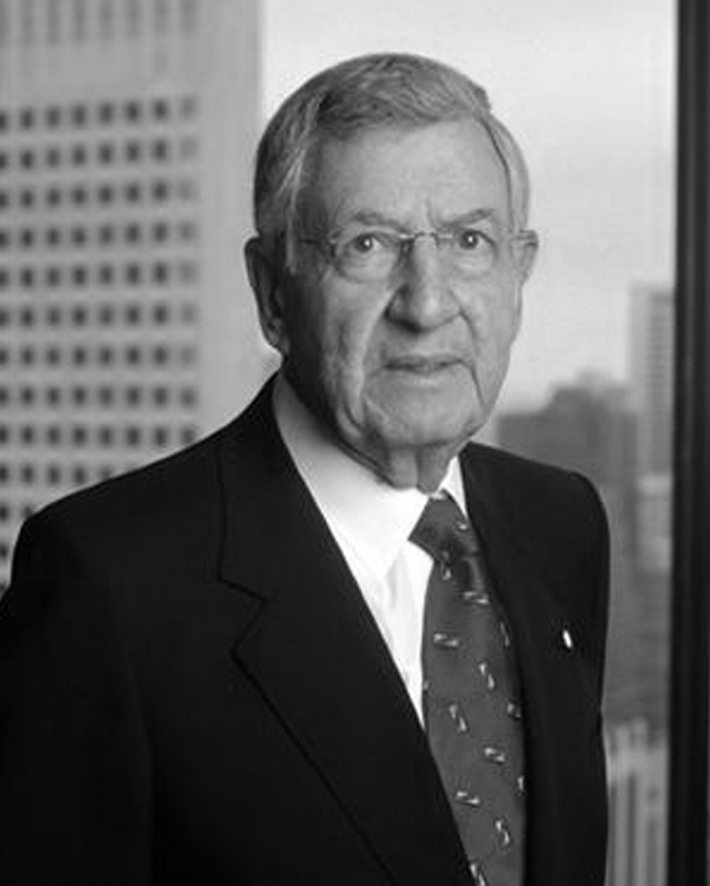
Alvin (Al) Libin
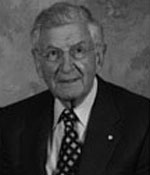 Alvin (Al) Libin is an active and respected community leader who has made enduring contributions, primarily in the areas of health care delivery and research and post secondary education.
Alvin (Al) Libin is an active and respected community leader who has made enduring contributions, primarily in the areas of health care delivery and research and post secondary education.
Al is a respected member of the Calgary business community. In the health care industry, he led the development of nursing homes within the province of Alberta and across Canada. He co-founded Villacentres, which began business in 1967 with 150 beds. Today, that business has grown into the Extendicare system of 28,000 beds in Canada, the United States and the United Kingdom. Al has always distinguished his operations by the quality of care and hospitality offered to the residents. Currently, he is president and chief executive officer of Balmon Holdings Ltd., a management services and investment company. Also, he is a director and owner of the Calgary Flames Hockey Club.
Al's contributions, in terms of community involvement, are most noteworthy and are best exemplified by his volunteer efforts for health delivery and health research and technology. From 1979 to 1990, he was the chairman of the Board of Trustees of the Foothills Medical Centre, Calgary's teaching hospital and its leading health care facility. During that time, he led the Foothills in its program growth, pursuit of excellence and national and international recognition.
From 1990 to the present, he has served as the chairman of the Board of the Alberta Heritage Foundation for Medical Research, a body that supports medical research at Alberta universities and other medical and technology-related institutions.
During his tenure at the AHFMR, the Foundation's contributions to research and science have grown to nearly $50 million per year. The Foundation's capital has almost tripled to approximately $1 billion and has received the highest awards for its processes and successes.
In addition to leading formal health sector organizations, Al generously volunteers his time and his leadership skills to help build a better community. A prime example of this is when he took the initiative in forming and then played a key role in the recently completed Partners in Health Campaign; more than $52 million was raised in the community for needs of the partnership of the Calgary Regional Health Authority and the Faculty of Medicine with the University of Calgary.
Al's volunteer efforts have extended to and touched many other aspects of our community. He is a past president of the Calgary Jewish Community Council and has been a leader in nearly all endeavors within the Jewish community in Calgary and Alberta. His commitment to education is exemplified by his service to the University of Calgary in a number of roles, including as a leader in the University's successful Building the Vision national capital fundraising campaign from 1990 to 1993. As a leader of the United Way of Calgary and of many other community endeavors, he has consistently contributed to the betterment of quality of life in Canada.
Al has not only contributed most meaningfully of his time, talents and expertise to help make a better community in Calgary, he has been a significant financial contributor to many worthy causes in the province of Alberta, within Canada and internationally. He endowed the Alvin and Mona Libin Foundation, which now has assets of nearly $20 million and contributes approximately $800,000 annually to the community. The Alvin and Mona Libin Foundation has become a leading supporter of health and education needs and generously provides funding to a wide range of community endeavors, from the Women in Need Society to YMCA Partners in Youth.
Al Libin was named an Officer of the Order of Canada in 2001 and received an honourary Doctorate of Laws degree from the University of Calgary in 1994.
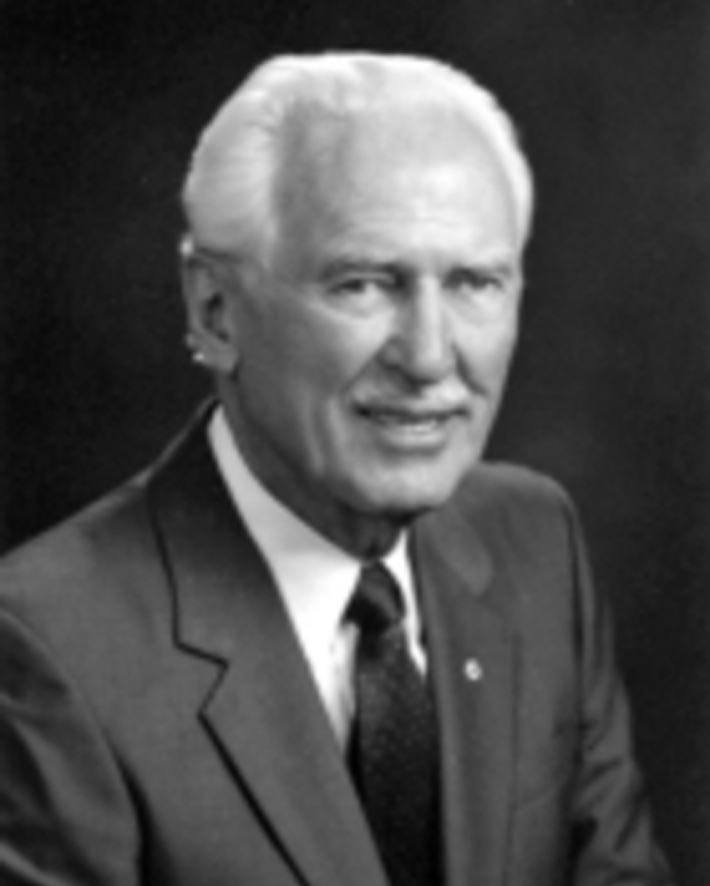
Theodore Rozsa
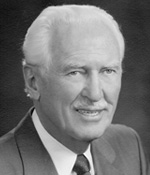 Ted was born in Grand Rapids, Michigan on June 12, 1915. He was the son of a Hungarian immigrant who instilled in him his life long commitment to the value of hard work and the importance of education. In 1933, he completed his high school diploma with honors, having been the top of his class in both his sophomore and junior years, and valedictorian in his senior year. A scholarship and a part-time job enabled him to enroll in what is now Michigan Technological University where he earned his Bachelor of Science degree in geology, with honors two and a half years after he entered.
Ted was born in Grand Rapids, Michigan on June 12, 1915. He was the son of a Hungarian immigrant who instilled in him his life long commitment to the value of hard work and the importance of education. In 1933, he completed his high school diploma with honors, having been the top of his class in both his sophomore and junior years, and valedictorian in his senior year. A scholarship and a part-time job enabled him to enroll in what is now Michigan Technological University where he earned his Bachelor of Science degree in geology, with honors two and a half years after he entered.
Ted was a pioneer in the post-war oil industry. His first and only employment after graduation was with the Shell Oil Company where he spent thirteen years managing seismic exploration from the Gulf of Mexico to the tundra of northern Alberta. While working in Texas, he met and married Lola in 1939. He was moved to Calgary as the Chief Geophysicist for Canada in 1949. One year later, Ted made the bold decision to leave Shell and seize the opportunity to start his own company, Frontier Geophysical. Frontier's first three crews worked for Shell then the company expanded to seven seismic crews and one slim hole drilling rig. Ted made a point to hire new graduates as well as more seasoned miners, and dedicated time to their education. When the need for geophysical exploration services diminished in 1963, Ted sold the company to his senior personnel and went into petroleum exploration and production under the company name Rozsa Oils in 1963, which became Basset Oil Limited in 1969. In 1979 he sold that successful company and formed Rozsa Petroleum of which he was also the owner and president which he ran until 2002.
From the time of his entry into the oil production business in 1963, Ted ran a one man outfit. He was everything from bookkeeper to on- site geologist, spending a lot of time in the field. Apart from his considerable skills as a geophysicist and geological engineer, he was known as a man of his word. In 1987, he was awarded the very first Canadian Society of Exploration Geophysicists (CSEG) gold medal for his integrity, outstanding professionalism, and significant contribution to the application and business development of Exploration Geophysics.
Ted strongly believed in giving back to community. While many of his contributions were quiet donations, once he and Lola started the Rozsa Foundation in 1990, their seed financing launched the construction of the Rozsa Centre at the University of Calgary, and the Rozsa Center for the Performing Arts at Michigan Technological University, where Ted had also established a student scholarship fund. Capital support was also given to the Banff Centre and Centre for the Performing Arts, the EPCOR Centre for the Performing Arts and the Foothills Hospital. In order to strengthen local arts organizations, Ted made a large endowment to the Calgary Philharmonic Orchestra for the Maestro's Chair, as well as giving significant annual operational funding to the CPO, Calgary Opera, Honens, in addition to supporting the Glenbow Museum, Theatre Calgary and many other charitable causes.
Ted's lifelong recreation was the game of golf. He was one of the early CSEG members who founded the Doodlebug Golf Tournament in 1953, in which he played for thirty-eight consecutive years and is remembered through the annual Ted Rozsa Doodlebug Award. He was an active member of the Calgary Golf and Country Club for over fifty years.
Ted received numerous honors for his professional contributions, philanthropy and civic leadership. In 1990, he received an Honorary Doctor of Engineering from Michigan Technological University and an Honorary Doctor of Laws from the University of Calgary. In 1991, he was named an Officer of the Order of Canada, of which he was most proud.
Other honors he received include: the Michigan Technological University Silver Medal (1988), the Canadian Music Council Award (1989), the Government of Canada Lescarbot Award (1991), Rotary Integrity Award (1994), Edmund C. Bovey Award for Business and the Arts (2002), Lieutenant Governor Award (2004), Alberta Centennial Medal (2005).
Ted and Lola have three children: Ruth Ann Rayner, Theodore Siydney Rozsa, and Mary Rozsa de Coquet. T.S. also established a career in the oil patch, while their Ruth Ann and Mary remain active in the family Foundation.
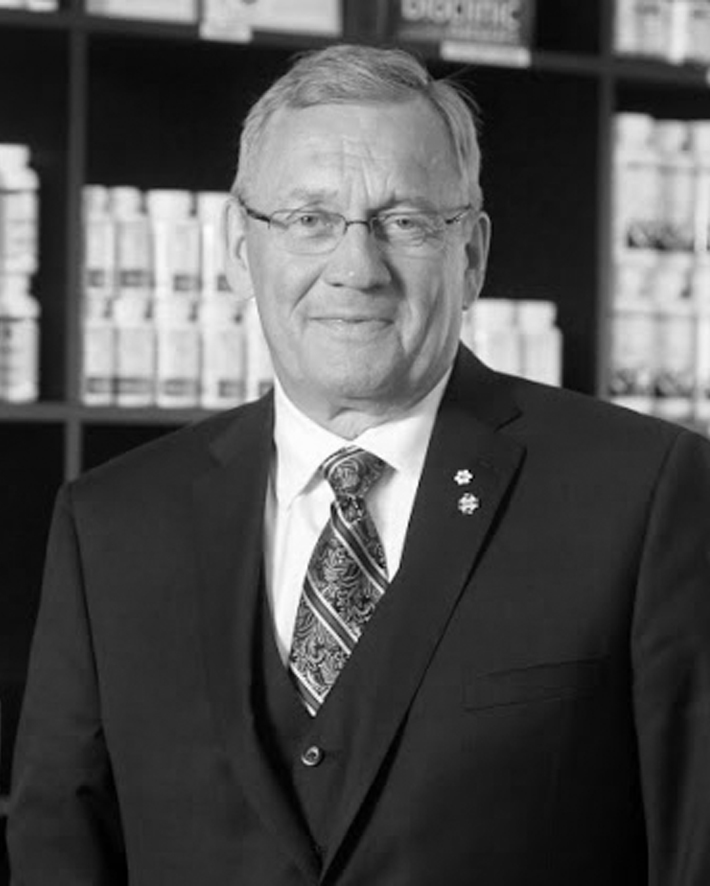
Biography
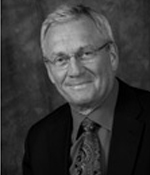 Allan (AL) Markin is a distinguished Alberta business and community leader who is as innovative as he is successful. In his business career, he has helped to create the prosperity the province enjoys today. In his philanthropic endeavors, he has ensured a brighter and healthier future for his fellow Albertans.
Allan (AL) Markin is a distinguished Alberta business and community leader who is as innovative as he is successful. In his business career, he has helped to create the prosperity the province enjoys today. In his philanthropic endeavors, he has ensured a brighter and healthier future for his fellow Albertans.
He was born on May 6, 1945 in the town of Bowness, which at the time sat outside the Calgary corporate limits. The small community eventually became part of the city and Allan became a proud Calgarian. His parents, Andrew and Florence Markin, set an example of hard work for Allan and his siblings: Diana, Jerry and Kathy. The rhythm of family life was set to the pulse of classic Alberta traditions – curling and hockey in the winter and summers spent outside under the blue Alberta skies. Al was a keen scholar and natural athlete who quickly developed what would grow into a lifelong passion for sports in general and hockey in particular.
When choosing a profession, he set his sights on electrical engineering and enrolled at the University of Alberta campus in Calgary. But when the time came to transfer to Edmonton to complete the degree, Al knew that his future lay in the oil and gas sector. He switched his focus and graduated in 1968 as a chemical engineer.
He started in the field learning every facet of operations, form drilling to completion. He then moved to increasingly senior responsibilities with Amoco Texas and Merland Exploration before joining Calgary's Poco petroleum as President and Chief Executive Officer in 1982. Six years later, Allan became Chairman of the Board of Canadian Natural Resources Limited (CNRL). The firm would grow to become one of the most successful oil and gas companies in the world but it started as a small operation with just six employees and very limited capital. Allan credits the success of CNRL to three factors: a good vision combined with good strategy and a healthy dose of serendipity.
In many ways, the company's successful vision reflects the innovative spirit and desire for balance that permeates Allan's approach to life. He raised industry eyebrows when he unveiled the company's decidedly unconventional vision statement: "to develop people to work together to create value for shareholders by doing it right with fun and integrity." Allan also holds a rare commitment to getting out and meeting every field staffer at least once a year.
The second factor for success – the good strategy – Allan credits to his friend and business partner. The serendipity some might discuss as simple good fortune, but those who know and respect Al will tell you that he's created his successes through tremendous skill and imagination along with unrelenting energy and hard work.
Al has applied those same qualities to his efforts to serve the community and province he loves. He has focused his contributions on the areas of health care and education. Al's contributions to health care have placed a decided emphasis on wellness and disease prevention. He endowed the Markin Chair in health and Society at the University of Calgary and Invested in the schools Institute for Public Health. Al has also offered significant support for Markin Hall, the Management and Health Services Building at the University of Lethbridge. Al's interest in preventative health care also extends to the support he offers field CNRL employees. Under his guidance, the company developed a comprehensive, gold standard wellness program that includes flying doctors to field operations as needed. Al has also spearheaded nutritional research in northern regions and has implemented the Pure North S'Energy Project to provide supplements and nutritional guidance to prevent disease and enhance employee health and longevity.
Al has offered equal contributions to developing educational opportunities for Albertans. He served as a driving force behind the creation of St. Mary's University College in Calgary, an institution that reflects Al's belief in the importance of spirituality and academic freedom. He also support the Markin/CNRL Natural Resources Engineering Facility at the University of Alberta, the Oil Sands Graduate Research Award at the Northern Lights College and the Marking Flanigan Distinguished Writer in Residence Program at the University of Alberta, with the stipulation that recipients make room in their timetables for arts courses. This approach reflects Al's originality and is in keeping with his own commitment as a lifelong student of the liberal arts.
Other organizations that have benefited from Al's community leadership include the United Way, The Alberta Adolescent Recovery Centre and the Nature Conservatory of Canada. His hometown enjoys the vision he has provided as a longstanding co-owner of the Calgary Flames Hockey Club. Much further afield, Al has given valued support to organizations such as World Vision Canada, the Sri Narayani Foundation in India for the Education of Children and programs for children in Chinese Tibet.
Al holds Honourary Doctor of Law degrees from the University of Lethbridge, the University of Calgary and the University of Alberta. He received an honourary fellowship from St. Mary's University College, The Alberta Centennial Medal and the Pinnacle Award of Business Excellence in Alberta. In 2004, he was named the City of Calgary Citizen of the Year. Al is also a multiple recipient of the Wall Street Journal Gold Award for Outstanding Achievement. In 2008, the Governor General announced Al's appointment as an Officer of the Order of Canada.
When asked what he wishes for the many students he has encouraged and supported over the years, Al offers imply that he hopes thy enjoy "exceptional values and positive balance throughout their lives." If those students are in need of a role model on how to achieve that balance, or how to serve their community with compassion and true distinction, they need look no further than Al Markin.

